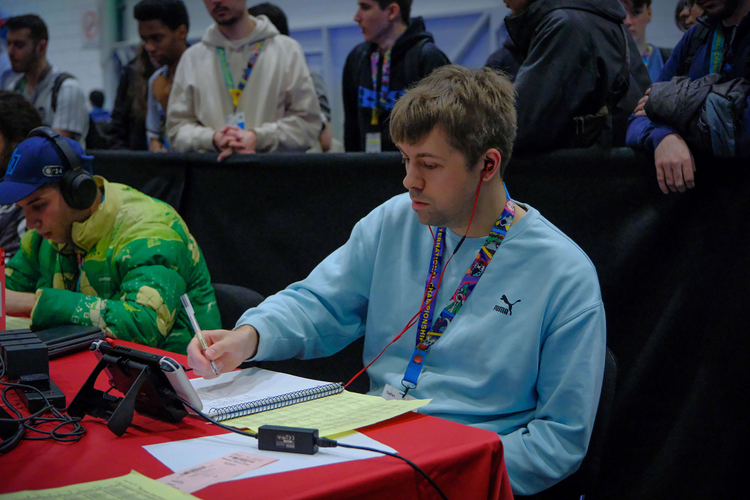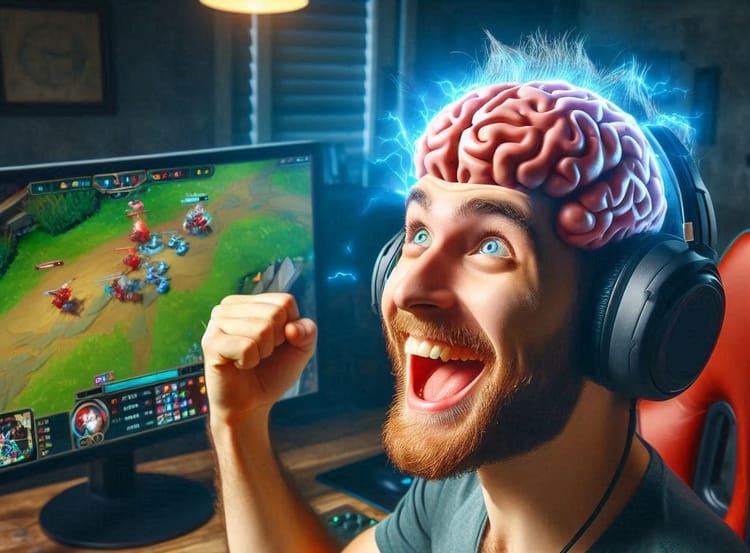Emotions, Mood State, & Performance
We discuss how our emotions and mood state influence video gaming and esports performance. What can players do to win more games?

Good day, y’all.
Today, we’ll be looking at a factor impacting the performance of any kind of player – professional or casual – that is usually overlooked: mood state. How does one’s mood state change over the course of a game, depending on the outcome (win/loss)? What’s the influence of mood on performance? What do we need to know, as players, to perform better? Let’s find out…
Today, we’ll be looking at a factor impacting the performance of any kind of player – professional or casual – that is usually overlooked: mood state. How does one’s mood state change over the course of a game, depending on the outcome (win/loss)? What’s the influence of mood on performance? What do we need to know, as players, to perform better? Let’s find out…
👥 Question, Context & Participants
In a recent study from 2022, Mateo-Orcajada and colleagues went to check if:
- pre- and post-game mood changes depending on the outcome of a game (win or loss), and
- there’s a difference between performance and post-game mood.
💢 Win or Loss - Mood changes
Let’s address the question about mood changes pre- vs. post-game depending on the outcome of a game first. When the team was able to put a win on their score board, changes in anger as well as fatigue were measured.
“It can be concluded that there are differences in mood states before and after the match when the match is won, with a significant decrease in anger and a significant increase in fatigue.” - Mateo-Orcajada et al., 2022
In comparison, when the match was a loss, changes in mood states were more dramatic. All measured moods (tension, depression, anger, fatigue, and confusion) besides vigor had changed. The changes, as you may expect, were all negative, meaning decreases in all of them.
🏆 Mood & Performance
When we usually think about performance, may it be in sports or other domains, we don’t really have mood stages or emotions at the top of the list. As you can probably imagine, in Esports as well as other sports, highly positive (e.g. enthusiasm) or negative (tilt, anger etc.) emotions can turn the tides. A part of team psychologists’ work is making sure players don’t get too out of whack emotionally.
In our study at hand, the authors found a relationship between performance variables and post-game mood state. Performance variables were in-game measures such as deaths, kills, towers destroyed, gold amount, etc.) as well as bio-physiological measures like heart rate. Heart rate and positive performance actions (e.g. killing, player or destroying a tower, achieving objectives – wow! Who would have thought!) had the most impact on winning, or vice versa for the opposing team.
In terms of mood states, performance actions and heart rate resulted in a positive correlation with vigor, and a negative correlation with the other mood states. To sum up the results, the authors stated:
Therefore, the results obtained indicate the events occurring during the game, as well as the final outcome of the game, significant influence the mood of the players. - Mateo-Orcajada et al., 2022
💡 Implications of this study for professional and us, casual players, are straightforward. As a progamer and team, you want to make sure that your players are always calm, cool, and collected, especially before tournament gameplays. This can be tricky between matches, let’s say in a BO5, when something happens and makes players emotional (e.g. tilt).
For the average player, we can conclude that hitting “Play” after we just lost a ranked game is probably not a good idea as we are in a worse emotional state than before the match. This negative mood state will impact our performance going into the next one.
Hope you all have a great week ahead.
Christian 🙂
Join over 200+ (🤯) Gaming Science subscribers and become smarter every week.
"I love this type of content, thank you Chris."






